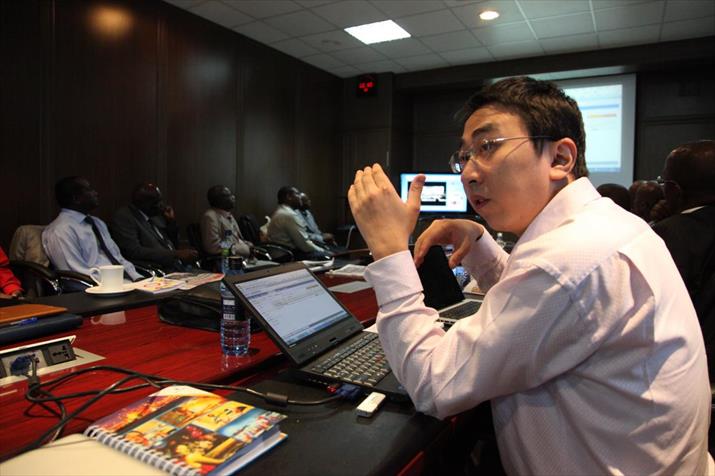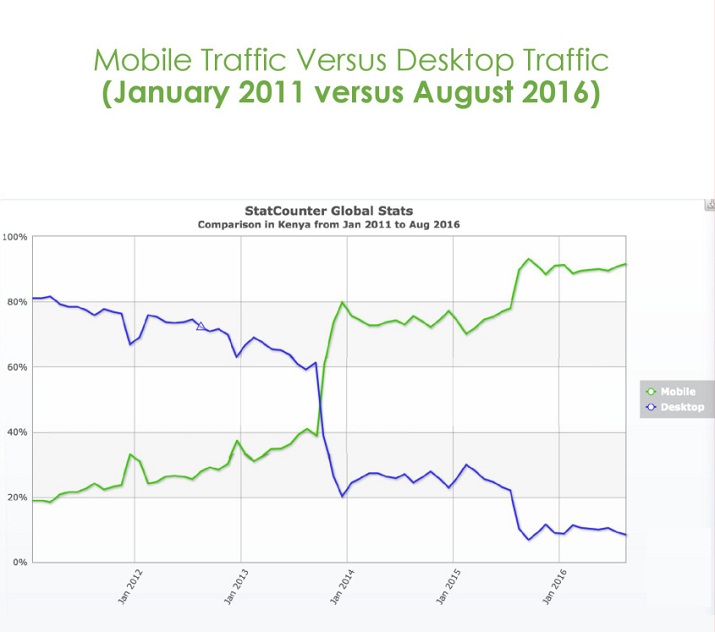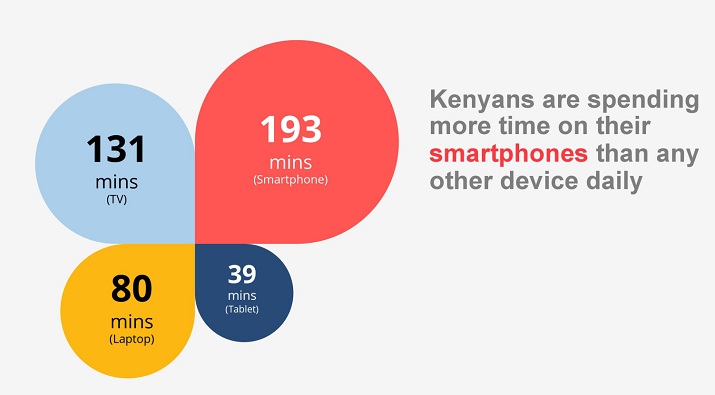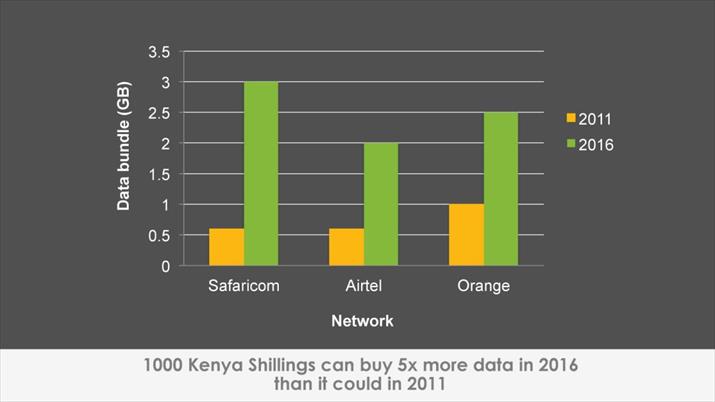|
||||||||||
| Home Nation World Business Opinion Lifestyle ChinAfrica Multimedia Columnists Documents Special Reports |
|
||||||||||
| Home Nation World Business Opinion Lifestyle ChinAfrica Multimedia Columnists Documents Special Reports |
| Business |
| Kenya's Mobile Internet Boom |
| According to a recent study released by Kenya's e-commerce platform Jumia, 60 percent of the Kenyan population has now access to Internet. This is the highest proportion in Africa, where the average Internet penetration rate is only 18 percent. |
| | VOL.9 September 2017 ·2017-09-05 |

ChinAfrica: What is the current situation of mobile Internet in Kenya?
Zi Ran: African countries with the fastest growth of mobile Internet are South Africa, Nigeria, Kenya and Ghana. Kenya had 47 million inhabitants at the end of 2016, with 38 million mobile phone users and a penetration rate of 89.2 percent. Users of smartphones account for 26 percent of the total. In addition, according to the Internet expert Mary Meeker's 2017 Internet Trends Report, the Kenyan mobile network is the fastest in Africa, with a speed of 12.2 Mbps in the first half of 2017, ahead of South Africa (6.7 Mbps), Morocco (5.2 Mbps) and Nigeria (3.9 Mbps). This is the result of the development of submarine cables and a surge in the popularity of smartphones.

What about the operators?
Before talking about operators, let me first give you a few figures. In 2011, Internet throughput on computers was significantly higher than on mobile devices. However, starting from 2014, mobile Internet has grown faster than computer-based Internet. Beginning in 2016, 90 percent of users access Internet on mobile devices.
As far as operators are concerned, among the three major players, Safaricom is the most popular, followed by Airtel and Orange. In 2016, Safaricom had more than 25 million users, accounting for 65.6 percent of the market, thanks to a drop in the price of its subscription. Indeed, Safaricom has launched different packages adapted to users' specific needs to boost consumption. As for mobile browsers, Kenyan users prefer Opera, while Facebook is the most popular social network.
How did mobile Internet change the daily lives of people in Kenya?
Mobile payment makes life more convenient. In Kenya, out of 1,000 mobile phone users, 980 have a mobile payment account. In 2014, the country ranked among the highest in the world in terms of mobile payment use, with 93 percent of Kenyans using mobile payment, of which 98 percent use it to transfer money, 43.3 percent to pay bills and 9 percent to make cash donations, for example to their church. The total amount of mobile payments in Kenya in 2016 was three times higher than in 2012.
And I cannot help but mention M-Pesa, a micro-finance and mobile money transfer system. The "M" means mobile and "Pesa" means money in Swahili. The system was launched by mobile operator Safaricom in 2007 and has become very popular among Kenyans. Today, the company has 30 million users in 10 countries and offers multiple services, including international transfers, loans and healthcare services. About 6 billion transactions were made on the system in 2016, with a peak of 529 transactions per second.

Do you have any other examples?
Yes, there is also M-Kopa, a manufacturer of solar panels established in 2011. Based in Nairobi, the company sells solar power panels throughout Kenya, Tanzania and Uganda and provides electricity to low-income households through mobile payment. Kenyans living in remote rural areas must spend on average $0.96 to use kerosene lighting for eight hours. By using M-Kopa, these costs can be cut in half. In general, customers pay a deposit of $28.9 for a solar panel, three LED bulbs, a rechargeable flashlight, and other items. They then pay $0.48 a day for one year. These daily payments are made on M-Pesa, so it's very useful.

You have been working in Africa for seven years now. What advice would you give to Chinese entrepreneurs eyeing the African market?
I can say that mobile Internet in Kenya is a mature sector and that the market is changing very fast. Chinese entrepreneurs need to do market research to understand local demand and consumption habits, in order to offer Internet services adapted to African needs, rather than copying and pasting what already exists in China.
| About Us | Contact Us | Advertise with Us | Subscribe |
| Copyright Beijing Review All rights reserved 京ICP备08005356号-5 京公网安备110102005860号 |